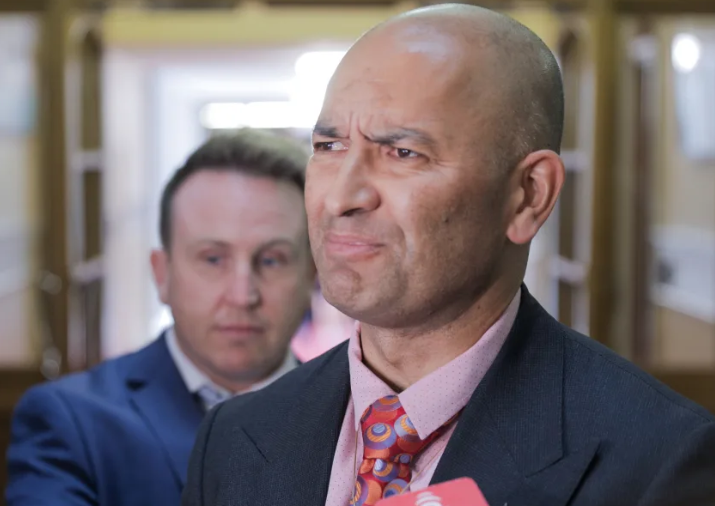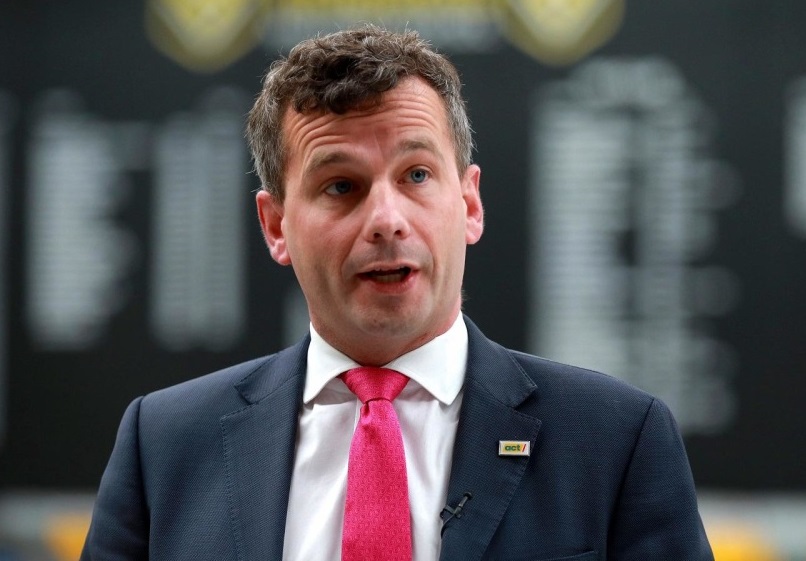National's Māori-Crown Relations Minister Tama Potaka welcomes the second reading of the Treaty Principles Bill as the legislation's "cremation day".
It is expected the controversial bill - which seeks to re-define the principles of the Treaty of Waitangi - will be voted down on Thursday afternoon.
ACT leader David Seymour, the bill's champion, is still holding out hope his coalition colleagues will change their minds at the last minute.
"They keep saying that they won't but of course, they'll always say they won't until they will," Seymour told RNZ.
The government manages business in the House and has set the Treaty Principles Bill down for second reading today - a day the Prime Minister and other party leaders generally spend away from Parliament.
Speaking at his weekly post-Cabinet meeting on Monday, Prime Minister and National Party leader Christopher Luxon confirmed he would not be at Parliament, but was happy to talk about the government legislation at some point today.
Asked about the chances he would change his position on the bill yesterday, Luxon said his position had been well articulated.
"I've explained it ad nauseam over the last few months and as I say, tomorrow I've got a meeting with iwi, a speech to do on economics and a series of other engagements."
Labour leader Chris Hipkins, who changed his schedule so he can speak on the bill this afternoon, accused Luxon of being "cowardly".
"This is the most divisive debate on race relations New Zealand has had in a generation. The Prime Minister signed New Zealand up to this debate.

Potaka has put his hand up for a speaking slot during the debate, but said the decision was not his to make.
He said the bill's "cremation day and nehu [burial] day are coming".
"We've been very clear. National does not support the bill past its second reading and there's been a whole host of organisations, individuals, experts, young people, rangatahi that are completely opposed to the principles bill.
"There's been a great sense of kotahitanga around that and I acknowledge that, respect it and accept that [today] it will be dealt with.
"It's dead, it's gone and [today] it will be buried."
New Zealand First leader and Deputy Prime Minister Winston Peters said he could not be there today because he was travelling to Tonga in his capacity as Foreign Affairs Minister.
Te Paati Māori co-leader Rawiri Waititi said it would be a positive day and the leaders of both sides of the House should be there to show the public they take it seriously.
"The Prime Minister allowed this type of bill to pass through the House and the harm that it's caused over the time that it was live.
"But for us, this is more about celebrating the mobilisation of our people. I think it's the most important part of this whole process."
Greens co-leader Marama Davidson said it was important Luxon fronted the legislation.
"I would expect that all of the party leaders are able to speak to this bill, especially the Prime Minister who allowed this divisive bill to come in under his watch.
"I'm really looking forward to being able to amplify the voices opposed to the Treaty Principles Bill."

The public support these principles: Seymour
David Seymour maintains his position that the majority of New Zealanders support the principles outlined in the legislation and that it was still possible his coalition partners will vote in favour of it today.
"I'm proud ACT has had the courage to put this issue on the table and I still hope that other political parties will step up too - because New Zealanders believe in these principles.
"I believe they're more ready for this debate than they're given credit for but if it's ACT alone ... I guess that in its own way will be a message to the public about who has the courage to raise these issues."
Asked about the overwhelming number of public submissions against the bill and the large protest march to Parliament in November last year, Seymour they did not reflect true public sentiment.
"That was less than one percent of New Zealanders. A lot of people submitting on a bill or going on a march can look impressive in sheer numbers. What you've got to remember is, there's five million people out there and we just don't normally see them all in one place."
"It's the same with abortion, it's the same with euthanasia. People come out in big numbers against things, but then when you actually go and ask the general public they have the opposite view. That's happened many times."
The Treaty Principles Bill will be read a second time after Question Time this afternoon.














